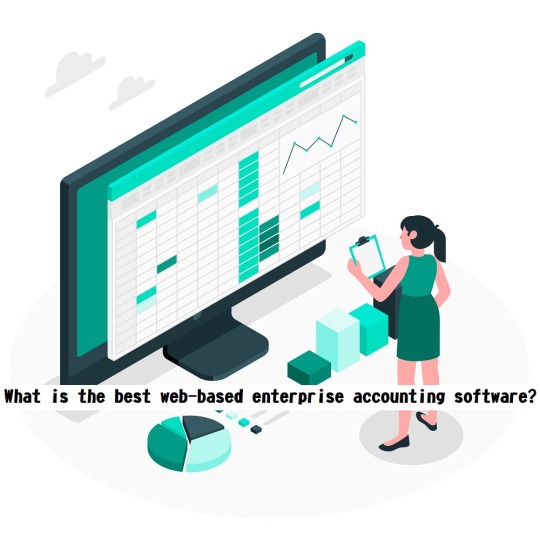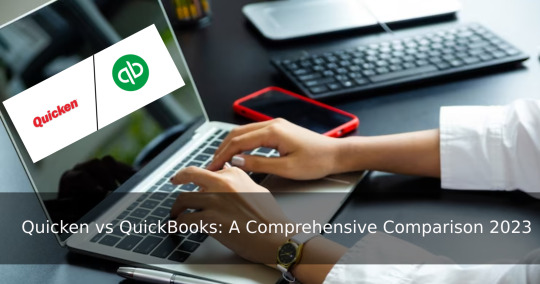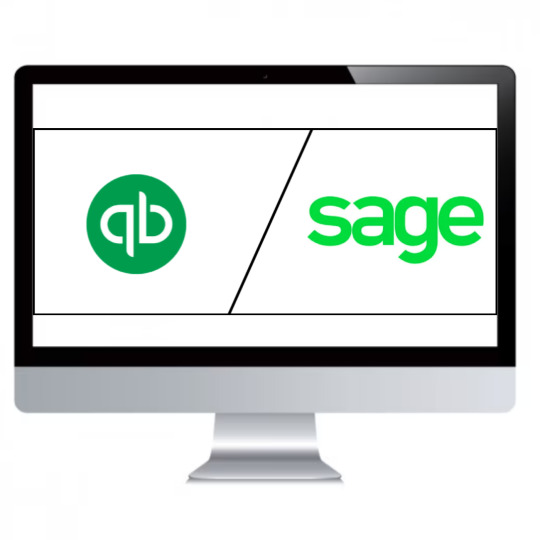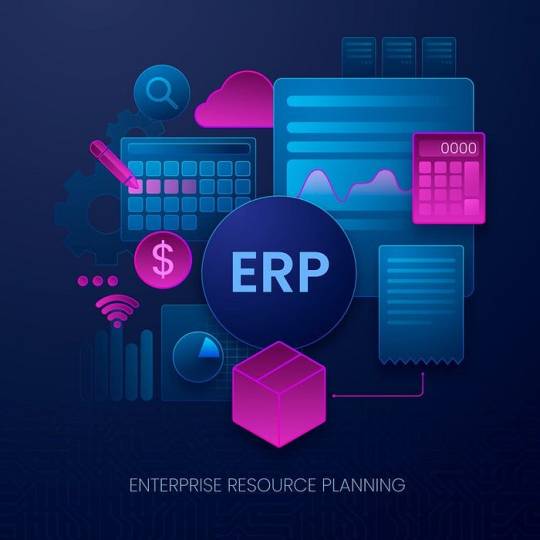#most popular accounting and finance software
Explore tagged Tumblr posts
Text
Sixteen years ago, software developer Jeremy Vaught created the Twitter handle @music to curate news and share stories about, obviously, music. Tens of thousands of Tweets later, he’d built a following of more than 11 million. Then, last week, Twitter—now rebranded as X—took the handle off him. An email from X, which Vaught posted to the platform, offered him no explanation but told him he could choose one of three other handles: @music123, @musicmusic, or @musiclover. All three were held by other users and so would presumably have to have been taken off them.
“It feels like this would be this forever thing where somebody's got their account taken and they were allowed to go take another one,” Vaught says. "Where would we end up? That'd be crazy."
He has since been assigned @musicfan.
The confiscation is entirely within X’s terms of service. As the company tries to turn itself into an everything app, from music to video to finance, it’s likely it will need to stake a claim to handles related to its new business lines. But unilaterally taking a popular handle off a user could be bad business and another demonstration of how X under Musk is stripping away the things that made Twitter, Twitter.
“I definitely think that it gives pause to building any sort of a brand on there,” Vaught says. "When you can't have any confidence that what you're working on is not just going to be taken away, that's huge."
The platform’s success was built on people, like Vaught, doing the work to build followings and create organic communities around shared interests. Heavy-handed land grabs on top of surging hate speech, shifting policies on verification, and, of course, the dropping of a globally recognized brand in favor of a letter, reinforce the feeling that Twitter is more and more becoming a place catering to a usership of one: Musk himself.
“It seems to me that he wants it to turn into a fanboy platform where people just go agree with him no matter what he says,” says Tim Fullerton, CEO of Fullerton Strategies and former VP of content marketing at WeWork. “There has been just this ongoing attack on the Twitter users that have made Twitter what it is. He doesn't respect the user base.”
Before purchasing Twitter, Musk was a super user of the platform, having tweeted some 19,000 times to an audience that now stands at 152 million. This meant that his experience on the app was likely radically different than that of most users—the average Twitter user has 707 followers, and many have no followers at all. On pre-Musk Twitter, about 80 percent of tweets came from just 10 percent of Twitter’s users.
Verification helped average users figure out who was worth following. Twitter invented the blue check mark (which now exists on other platforms like Instagram and TikTok to indicate a verified user) after the manager for the St. Louis Cardinals baseball team threatened to sue the platform over a parody account. From then onward, it was used to indicate the authentic accounts of public figures such as celebrities, journalists, and politicians, as well as brands or particularly large accounts (like @music).
Verified accounts “were the people who were producing the majority of the content that was driving more people to stay engaged and increasing the number of people who were using Twitter,” says Fullerton.
But to an influencer like Musk, a blue check was a valuable commodity. Who wouldn’t want to pay for it? So in December he launched Twitter Blue as a pay-to-play “verification” program, replacing the previous merit-based system.
It was, Fullerton says, the first step in its erosion of the communities that made it so popular.
According to a report from Similarweb, only 116,000 people signed up for the $8-a-month service in March. Less than 5 percent of the platform’s 300,000 legacy verified accounts have signed on to keep their blue ticks. Of the 444,435 users who signed up for Twitter Blue in its first month, about half have less than 1,000 followers, according to reporting from Mashable.
And for most users, removing verification has done away with a key visual shorthand that allows users to easily discern if the account or information they’re looking at is real. Firing most of the company’s trust and safety staff, the people who made and enforced the company’s policies around hate speech and misinformation, exacerbated the problem and made the platform increasingly unusable as a real-time source of information and news.
This week, Australia’s national broadcaster, ABC, became the latest large news organization to say it was leaving the platform over its “toxicity.”
For advertisers—still the largest source of X’s revenue—the growth of hate speech and misinformation is a major problem. In the first six months of Musk’s ownership, Twitter lost half of its advertising revenue.
Before, verified accounts and organizations were vetted by Twitter staff for authenticity and legitimacy. These accounts could drive conversation about certain topics, even without getting paid. The communities and engagement that they drove was part of what made Twitter attractive to advertisers.
“It's clear [formerly verified users] are not getting the traffic that they once did, because it's just a jumble and that's not what people want to see. They want to see the news. They want to see political people or sports,” says Fullerton. “When the Grammys or the Golden Globes or something like that happens, you're littering the feed with the RFK Jr.’s and all these awful right-wingers who used to be—rightly—banned.”
Musk has tried to entice influencers with a revenue-sharing program, which requires that users be verified to access. But, as Benedict Evans, an analyst and former partner at Andreessen Horowitz, pointed out in a tweet, confiscating the @music handle illustrated “essentially why no creator in their right minds would invest in Twitter’s monetization products.”
Research from Media Matters for America, a nonprofit watchdog group, found that the revenue-sharing program was cutting checks to right-wing conspiracy theorists. One user identified by MMA, Dom Lucre, regularly pushes QAnon conspiracy theories.
In December, shortly after taking over the platform, Musk announced that he would offer amnesty to accounts that had been previously banned from the platform, including right-wing influencers and Andrew Tate, who has been indicted for human trafficking. While these users may not be the ideal community for legacy users of Twitter, Bill Bergman, a lecturer in marketing at the Robins School of Business at the University of Richmond, suggests that perhaps Twitter’s current users are not the ones Musk is seeking to retain or draw in. “I get the impression Musk, with the direction it's going, doesn’t care what Bill Bergman, who has 400 followers, thinks, because Twitter as Bill Bergman knows it doesn’t exist anymore.” But what is coming next (except perhaps an ill-fated super-app) seems unclear.
And while his antics may have hurt Twitter’s brand, Bergman notes that the company is getting consistent if somewhat outsize coverage, a “pretty good” promotional strategy.
“Has he intimidated and upset all of the advertisers? Absolutely. Has he intimidated and upset all of our users that have been with this platform for 20 years? Absolutely,” says Bergman. “But he doesn’t seem to care about that.”
19 notes
·
View notes
Text
Best Business Software Tools in 2024
The right software tools can help increase productivity, draft operations more efficiently and promote company growth in today's high-paced business environment. Whether you are a start-up or an existing enterprise the following business software is necessary to improve different areas of your business.
1. Project Management: ClickUp

It is a feature-laden project manager that lets you handle tasks, projects, and workflows of all types. Its ease of use and user-friendly interface, complimented with diverse dashboards cater to audiences between small teams and large organizations. Task assignments, time tracking, goal setting, and collaboration options allow you to stop hopping between spreadsheets and emails so your projects are complete efficiently.
2. CRM–– Zoho CRM
Zoho CRM — Your Intelligent Customer Relationships Management System. Among other features, it has lead management, sales automation, and analytics to make sales performance improve on a consistent streamline both administrative aspect as well as customer satisfaction. Due to its integration capabilities with other Zoho products, as well as most third-party applications, It has become a flexible option for businesses that are ready to supercharge their customer relationship management.
3. Accounting: Zoho Books

Zoho Books- The Best Accounting Software for Business Owners Invoicing, expense tracking and financial reporting are some of its features. You can also rest assured that your taxes are being handled correctly and always have the latest view of your financial health to help you manage your finances better.
4. HR Management: monday. com HR
It is a complete human resources management software that helps companies to better structure their workforce. This system provides with facilities like employee on boarding, performance tracking, payroll management etc. With the platform's ease of use, UI simplicity, and automation capabilities in HR processes that would otherwise take hours away from key HR initiatives.
5. Payroll: OnPay

OnPay is an excellent payroll software for businesses of all sizes. It is a cloud payroll software for businesses that ensures complete compliance and automation of top-class payroll calculations, tax filings & employee payments. Additionally, OnPay provides HR and benefits management tools, effectively providing a full-fledged employee pay management solution.
6. Point-of-Sale (POS): eHopper
Versatile Point of Sale Software for Businesses Up To Mid-Sized It offers services like Inventory management, sales tracking and customer management. This makes eHopper a perfect choice for businesses that intend to simplify their sales operations using an affordable and intuitive POS system.
7. Inventory Management: Cin7

While there are plenty of other inventory management systems available, Cin7 stands out as one of the most popular options for small to mid-size businesses (SMBs) looking to get their stock levels, orders and supply chain operations under control. These functionalities consist of real-time inventory monitoring, order processing and e-commerce platform integration. With the powerful feature set of Cin7, businesses can keep inventory at an optimal level and fulfill customer demands to the hilt.
8. Website Builder: Weebly
Weebly is the website builder that you can also use to build your site or blog. It has lots of customizable templates, drag-and-drop functionality, and e-commerce ready to go. With Weebly, you can create a professional website even if you are a tech noob and give your business the relevant online visibility it needs.
9. Recruiting: ZipRecruiter

ZipRecruiter: Popular rated job search app for businesses on board. They provide hiring solutions through features like job posting candidates filtering and tracking the application. AI-powered matching from ZipRecruiter surfaces more relevant candidates to businesses faster.
10. VPN: NordVPN
It is a secure, encrypted VPN application that will make sure that you and your business stay safe as you work with the web. It provides features of encrypted connections, threat protection and global server access as well. In this way, It guarantees secure data in companies and privacy on internet.
Conclusion
The business software tools a company uses are very important to increase productivity and power growth. The above-mentioned tools are some of the best & flexible according to the fact which can assist businesses for any sized groups and help them attain their desired objectives. Implementing these tools in your operations can also help speed up processes and lead to higher customer satisfaction, as well as allow you to be on top of the competition.
#business#business growth#innovation#startup#entrepreneur#100 days of productivity#project management#sales#payroll#hr management#hr software#hr services#ai#artificial intelligence#technology#tech#techinnovation
2 notes
·
View notes
Text
What is the best web-based enterprise accounting software?

In the fast-paced and ever-evolving landscape of business, staying on top of your finances is crucial. As enterprises expand their operations, managing accounts efficiently becomes a daunting task. Thankfully, with the advent of technology, businesses now have access to a plethora of web-based enterprise accounting software options to streamline their financial processes. In this comprehensive guide, we will explore the ins and outs of web-based enterprise accounting software, helping you make an informed decision on the best solution for your business needs.
Understanding Web-Based Enterprise Accounting Software
Web-based enterprise accounting software, often referred to as cloud accounting software, is a digital solution that allows businesses to manage their financial activities online. Unlike traditional accounting systems that rely on on-premise software, web-based accounting tools operate in the cloud, offering users the flexibility to access their financial data from anywhere with an internet connection.
Advantages of Web-Based Enterprise Accounting Software
1. Accessibility
One of the primary advantages of web-based accounting software is accessibility. With data stored securely in the cloud, users can access their financial information anytime, anywhere. This proves especially beneficial for enterprises with multiple locations or remote teams, fostering collaboration and efficiency.
2. Cost Efficiency
Web-based accounting solutions often follow a subscription-based model, eliminating the need for costly upfront investments in software and hardware. This cost-effective approach makes it easier for businesses to scale their accounting infrastructure according to their needs without breaking the bank.
3. Real-Time Updates
In the dynamic world of business, real-time data is invaluable. Web-based accounting software provides instant updates, ensuring that users have access to the most recent financial information. This feature is crucial for making informed decisions and adapting to market changes promptly.
4. Automatic Updates and Maintenance
Gone are the days of manual software updates and maintenance. With web-based accounting solutions, updates are automatic, and maintenance is handled by the service provider. This frees up valuable time for businesses to focus on core operations rather than managing software updates.
Features to Look for in Web-Based Enterprise Accounting Software
1. User-Friendly Interface
A user-friendly interface is essential for ensuring that your team can navigate the software seamlessly. Look for solutions with intuitive dashboards and easy-to-understand features to minimize the learning curve for your staff.
2. Scalability
As your enterprise grows, so do your accounting needs. Choose a web-based accounting solution that can scale with your business, accommodating increased transaction volumes and additional users without compromising performance.
3. Integration Capabilities
Efficient accounting doesn't happen in isolation. Ensure that the web-based accounting software you choose integrates seamlessly with other essential business tools, such as CRM systems, project management software, and e-commerce platforms.
4. Security
The security of your financial data should be a top priority. Opt for web-based accounting software that employs robust encryption protocols and follows industry best practices for data protection. Additionally, check for features such as multi-factor authentication to add an extra layer of security.
Top Contenders in the Web-Based Enterprise Accounting Software Market
1. MargBooks
MargBooks Online is a India's popular online accounting solution known for its user-friendly interface and robust features. It offers a range of plans to suit businesses of all sizes and provides tools for invoicing, expense tracking, and financial reporting.
2. Xero
Xero is another cloud accounting software that caters to small and medium-sized enterprises. With features like bank reconciliation, inventory management, and payroll integration, Xero is a comprehensive solution for businesses looking to streamline their financial processes.
3. NetSuite
NetSuite, owned by Oracle, is a cloud-based ERP (Enterprise Resource Planning) solution that includes robust accounting functionalities. It is suitable for larger enterprises with complex financial needs and offers features such as financial planning, revenue recognition, and multi-currency support.
4. Zoho Books
Zoho Books is part of the Zoho suite of business applications and is designed for small and medium-sized enterprises. It provides features such as automated workflows, project billing, and collaborative client portals, making it a versatile choice for businesses with diverse needs.
Making the Right Choice for Your Business
Choosing the best web-based enterprise accounting software for your business requires careful consideration of your specific needs and objectives. Here are some steps to guide you through the decision-making process:
1. Assess Your Business Requirements
Start by identifying your business's specific accounting requirements. Consider factors such as the number of users, the complexity of your financial transactions, and the need for integration with other business applications.
2. Set a Budget
Determine a realistic budget for your accounting software. While web-based solutions often offer cost savings compared to traditional software, it's essential to choose a solution that aligns with your financial resources.
3. Explore Free Trials
Many web-based accounting software providers offer free trials of their platforms. Take advantage of these trials to explore the features and functionalities of different solutions before making a commitment.
4. Seek Recommendations and Reviews
Consult with other businesses in your industry or network to gather recommendations and insights. Additionally, read reviews from reputable sources to gain a better understanding of the user experiences with different accounting software options.
The Evolution of Web-Based Enterprise Accounting Software
As technology continues to advance, so does the landscape of web-based enterprise accounting software. The evolution of these platforms is driven by the ever-changing needs of businesses and the ongoing developments in cloud technology. Let's delve deeper into the evolving trends shaping the future of web-based accounting solutions.
1. Artificial Intelligence (AI) and Automation
The integration of artificial intelligence and automation is revolutionizing how businesses handle their financial processes. Modern web-based accounting software is incorporating AI algorithms to automate repetitive tasks, such as data entry and invoice categorization. This not only increases efficiency but also minimizes the risk of human error.
2. Enhanced Data Analytics
In the age of big data, the ability to derive meaningful insights from financial data is paramount. Advanced web-based accounting solutions are now equipped with powerful data analytics tools. These tools help businesses analyze trends, forecast future financial scenarios, and make data-driven decisions.
3. Mobile Accessibility
The shift towards mobile accessibility is a notable trend in web-based enterprise accounting software. Businesses are increasingly relying on mobile devices for day-to-day operations, and accounting software providers are responding by offering mobile-friendly applications. This allows users to manage their finances on the go, providing unparalleled flexibility.
4. Integration with E-Commerce Platforms
As e-commerce continues to thrive, businesses are looking for accounting solutions that seamlessly integrate with their online sales platforms. Modern web-based accounting software often includes features tailored for e-commerce, such as automated transaction reconciliation with online sales channels and inventory management.
5. Blockchain Technology
Blockchain technology is making waves in various industries, and accounting is no exception. Some web-based accounting solutions are exploring the integration of blockchain for enhanced security and transparency in financial transactions. This could revolutionize how businesses handle aspects like auditing and transaction verification.
Common Challenges and How to Overcome Them
While web-based enterprise accounting software offers numerous benefits, it's important to be aware of potential challenges and how to overcome them. Here are some common issues businesses may face:
1. Security Concerns
The sensitive nature of financial data raises concerns about security in the cloud. To address this, choose a web-based accounting solution that employs robust encryption protocols and complies with industry security standards. Additionally, educate your team about best practices for secure online behavior.
2. Connectivity Issues
Reliable internet connectivity is crucial for accessing web-based accounting software. In regions with unstable internet connections, businesses may face challenges in real-time collaboration and data accessibility. Consider implementing backup solutions for offline access or explore accounting software with offline capabilities.
3. Customization Needs
Every business has unique accounting requirements. Some businesses may find that certain web-based accounting solutions lack the level of customization they need. In such cases, explore platforms that offer extensive customization options or consider integrating additional specialized accounting tools.
4. Data Ownership and Control
Understanding the terms of service and data ownership is essential when using web-based accounting software. Ensure that the chosen platform allows you to retain control over your financial data and provides mechanisms for data export in case of migration to a different system.
Conclusion: Making the Right Choice for Long-Term Success
In the fast-paced world of business, the right web-based enterprise accounting software can be a game-changer. Whether you're a small startup or a large enterprise, the key is to stay informed about the latest advancements in accounting technology and align your choice with the long-term goals of your business.
As you navigate the vast landscape of web-based accounting solutions, remember that the best choice is the one that seamlessly integrates with your business processes, enhances efficiency, and adapts to the evolving needs of your enterprise. If you have any specific questions or need further guidance on a particular aspect of web-based accounting software, feel free to ask for more information!
Also read- Online billing and accounting software to manage your business
#Web-based accounting#Cloud software#Financial management#Enterprise solutions#accounting#software#billing#online billing software#technology#programming#erp#tech#drawings#illlustration#artwork#art style#sketchy#art#aspec#aromantic asexual#arospec#acespec#aroace#aro#bg3#astarion#shadowheart#gale dekarios#gale of waterdeep#karlach
2 notes
·
View notes
Text

Starting a Side Business: A Comprehensive Guide
In the dynamic world of entrepreneurship, starting a side business has become a popular avenue for many to explore their passions, diversify their income, and test the waters of self-employment without the full risk of leaving their day job. The allure of turning a hobby or skill into a profitable venture is strong, and with the right approach, it can be an incredibly rewarding experience.
Identifying Your Niche The first step in starting a side business is to identify your niche. This involves recognizing your strengths, skills, and interests, and considering how they can be transformed into a service or product that people need or want. Whether it's freelance writing, pet sitting, or creating digital products, the key is to find a gap in the market that you can fill.
Creating a Business Plan Once you've identified your niche, the next step is to create a business plan. This document should outline your business goals, target market, competition, pricing strategy, and financial projections. It doesn't have to be overly complex, especially for a side business, but it should provide a clear roadmap for your venture.
Understanding Legal Requirements Before launching your side business, it's crucial to understand the legal requirements. This includes registering your business, obtaining any necessary licenses or permits, and understanding tax implications. Depending on your location and the nature of your business, the requirements will vary.
Setting Up Finances Financial management is critical for any business. For a side business, it's advisable to keep your personal and business finances separate. This can be achieved by opening a dedicated business bank account and using accounting software to track expenses and income.
Building Your Brand Your brand is what sets you apart from the competition. It includes your business name, logo, and overall aesthetic. Building a strong brand will help you create a memorable impression and foster customer loyalty.
Marketing Your Business Marketing is essential for attracting and retaining customers. Utilize social media, content marketing, and networking to get the word out about your business. Offering promotions and discounts can also be effective strategies to draw in new clients.
Managing Your Time One of the most difficult challenges of running a side business is time management. Balancing a full-time job, a personal life, and a side business requires discipline and organization. Prioritize tasks, set a schedule, and be realistic about what you can achieve.
Scaling Your Business As your side business grows, you may reach a point where you need to consider scaling. This could involve outsourcing tasks, automating processes, or even transitioning to full-time entrepreneurship.
Conclusion Starting a side business is an exciting journey that can lead to personal and financial growth. By following these steps and remaining committed to your vision, you can build a successful side business that complements your lifestyle and career.
For more detailed insights and ideas on side hustles, you can explore resources such as Forbes' list of “30 Side Hustle Ideas To Make Extra Money In 2024”, or SumUp's beginner's guide on starting a side hustle. These resources provide valuable information on various side hustle opportunities and how to get started.
Remember, the key to a successful side business is passion, planning, and perseverance. Good luck on your entrepreneurial journey!
1 note
·
View note
Text
Quicken vs QuickBooks: Which One is Right for Your Business?
Are you struggling to choose the right accounting software for your business? Look no further! In this post, we'll be comparing Quicken vs QuickBooks – two of the most popular accounting software on the market. Both are powerful tools that offer features to manage your finances, but which one is right for you? Join us as we dive into what makes these two options unique and how to make an informed decision based on your business needs. Let's get started!

Comparing Quicken vs QuickBooks
When it comes to managing your business finances, Quicken and QuickBooks are two of the most popular software options available. While Quicken vs QuickBooks both programs offer similar accounting features such as tracking expenses and income, there are some key differences between them.
Quicken is designed primarily for personal finance management. It's a great option if you're self-employed or run a small business with just a few employees. With Quicken, you can track your bank accounts, credit cards, investments and more in one place.
On the other hand, QuickBooks is more ideal for businesses that require robust accounting tools like inventory management and payroll processing. It's also suitable for larger organizations with multiple users who need access to financial data simultaneously.
Another difference between these two platforms is their pricing models. Quicken offers a one-time purchase fee while QuickBooks has monthly subscription plans based on the features required by your business.
Ultimately, choosing between Quicken vs QuickBooks depends on your specific needs as well as the size and complexity of your organization. Consider factors such as budget constraints and which features are necessary for efficient financial management before making a decision.
What is Quicken?
Quicken is a personal finance management software that has been around since 1983. It was originally designed to help individuals manage their finances by tracking income and expenses, creating budgets, and generating reports. Today, Quicken offers various versions of its software that cater to different financial needs.
One version of Quicken is called Quicken Deluxe which allows users to track investments in addition to managing their personal finances. Another version is called Quicken Premier which includes features for managing rental properties as well as investment tracking.
Quicken also offers a mobile app that allows users to access their financial information on the go. Users can sync their data across devices so they always have access to up-to-date information.
Quicken is best suited for individuals or small businesses looking for an easy way to manage their personal finances without needing advanced accounting knowledge.
What is QuickBooks?
QuickBooks is a popular accounting software designed for small businesses to manage their financial transactions, invoices, bills and expenses. It was developed by Intuit and first released in 1983 as a desktop application. Since then, it has expanded its features and services to cater to the growing needs of businesses.
This software allows users to track inventory levels, create sales orders, generate reports and integrate with other applications such as payroll systems. QuickBooks also offers cloud-based versions that enable users to access their data from anywhere at any time.
One of the key benefits of using QuickBooks is its user-friendly interface which makes it easy for beginners to navigate through various financial tasks. The program also provides tutorials and customer support resources for those who need additional assistance.
Another great advantage of this software is that it can be customized according to specific business requirements. Users can choose from different plans based on the size of their business or opt for add-ons like payroll management or payment processing services.
QuickBooks has become a go-to solution for small businesses looking for an efficient way to handle their finances while staying organized and compliant with tax laws.
The Difference between Quicken vs QuickBooks
Quicken and QuickBooks are both financial management software options, but they serve different purposes. Quicken is a personal finance management tool that can help individuals with their budgeting, banking, and investment tracking needs. On the other hand, QuickBooks is an accounting software designed specifically for small businesses.
One of the key differences between Quicken vs QuickBooks is in their functionality. While Quicken focuses on managing personal finances, QuickBooks offers more comprehensive features such as invoicing, payroll processing, inventory management, and accounts payable/receivable. This makes it a better option for small business owners who need to manage multiple aspects of their financial transactions.
Another difference between these two accounting tools is their pricing model. Quicken typically charges a one-time fee for purchasing its software while QuickBooks follows a subscription-based model where users pay monthly or annually depending on the plan they choose.
Deciding whether to use Quicken vs QuickBooks depends largely on your individual needs as well as those of your business if you have one. If you're looking for robust accounting capabilities with features like invoicing or inventory tracking then go for QuickBooks while if you're just looking to manage personal finances then stick with Quicken
Which One is Right for Your Business?
When it comes to deciding which accounting software is right for your business, there are a few factors you should consider. One of the first things you need to determine is what specific features your business needs. For example, if your business requires inventory tracking or payroll management, QuickBooks may be the better option for you.
Another important consideration is the size of your business. Quicken may be more suitable for small businesses or sole proprietors who don't require as many advanced features as larger companies. On the other hand, QuickBooks can handle multiple users and large amounts of data, making it ideal for medium-sized and larger businesses.
The level of technical expertise required to use each software platform is also an important factor to consider. If you have limited experience with accounting software and want something user-friendly and easy-to-learn, Quicken may be a better choice. However, if you're comfortable with technology and want more advanced capabilities like custom reports or integrations with other software tools, QuickBooks might suit your needs better.
Ultimately, choosing between Quicken vs QuickBooks depends on understanding what your business requirements are in terms of functionality, size and technical aptitude. By taking these factors into account when selecting an accounting solution that best meets those criteria will help ensure success over time.
How to Choose the Right Accounting Software for Your Business
Choosing the right accounting software for your business can be overwhelming, especially with so many options available. Here are some important factors to consider when selecting the best fit for your needs:
Business Size: Consider the size of your business and whether you need a basic or advanced accounting system.
Features: Look at the features offered by each platform and determine which ones are essential for managing your finances.
User Interface: Make sure that you choose a user-friendly interface that is easy to navigate and understand.
Integration: Check if the software integrates with other tools such as payment processors, CRMs, or inventory management systems.
Support: Choose a platform that offers reliable customer support in case any issues arise.
Security: Ensure that the software has robust security measures in place to safeguard sensitive financial data from potential cyber threats.
Pricing: Determine whether there are any upfront costs, monthly fees or hidden charges associated with using the accounting software before making a final decision.
By considering these factors carefully when choosing an accounting system, you'll have greater confidence in finding one that meets all of your requirements and helps drive success for your business!
Conclusion
After comparing Quicken vs QuickBooks and analyzing the features of both accounting software, it's clear that they have significant differences.
Quicken is best suited for individuals or small business owners who need to manage their personal finances or do basic bookkeeping tasks. On the other hand, QuickBooks provides a more robust platform with advanced tools and features that cater to larger businesses.
Choosing the right accounting software depends on your individual needs and budget. Consider factors such as business size, industry type, level of financial expertise, and future growth plans when making your decision.
Whichever software you choose between Quicken vs QuickBooks will help streamline your financial management processes and improve the accuracy of your accounting records. So take time to evaluate both options carefully before deciding which one is right for your business!
3 notes
·
View notes
Text
Exploring Career Opportunities in New Zealand for International Graduates

New Zealand has long been a popular destination for international students seeking high-quality education and a vibrant cultural experience. As an international graduate, you may wonder what career opportunities await you in this beautiful country after completing your studies. The good news is that New Zealand offers a range of career prospects across various industries, from technology and healthcare to engineering and finance. This article explores the career opportunities in New Zealand and how you can tap into them as an international graduate.
Growing Job Market in New Zealand
New Zealand boasts a strong and diverse economy, with various sectors continuously growing and offering ample opportunities for skilled graduates. The job market has become increasingly accessible to international graduates, particularly in fields with a skills shortage, where there is high demand for qualified professionals. Some of the most in-demand areas include information technology (IT), healthcare, engineering, and agriculture.
Key Sectors for Career Opportunities in New Zealand
Technology and IT The tech industry in New Zealand is thriving, and the demand for skilled IT professionals continues to rise. International graduates with expertise in software development, data analysis, cyber security, and artificial intelligence are highly sought after. Cities like Auckland, Wellington, and Christchurch are home to many tech startups and established firms, providing a wealth of opportunities for tech professionals.
Healthcare and Medicine With an aging population and a growing focus on healthcare services, New Zealand’s healthcare industry is in constant need of skilled professionals. Doctors, nurses, physiotherapists, and mental health professionals are among the most in-demand positions. International graduates with qualifications in healthcare can find opportunities in hospitals, clinics, and research institutions.
Engineering and Construction Engineering graduates can find numerous opportunities in New Zealand’s booming construction and infrastructure sectors. Civil, electrical, and mechanical engineers are in demand, especially as the country undertakes several large-scale infrastructure projects. International graduates with engineering degrees can also explore roles in renewable energy, which is an emerging industry in New Zealand.
Finance and Accounting New Zealand’s financial services sector is well-developed and offers career opportunities for graduates in accounting, banking, and financial management. The country is also home to various international banks and financial institutions, offering roles that cater to both local and global markets.
Tourism and Hospitality Tourism is a cornerstone of New Zealand's economy, attracting millions of international visitors every year. Graduates in hospitality management, tourism, and event planning can find positions in hotels, travel agencies, tour operators, and government organizations that promote tourism. This sector offers a dynamic work environment, with opportunities to work across the country.
The Role of Internships and Work Experience
For international graduates looking to gain a foothold in the New Zealand job market, internships and work experience are invaluable. Many employers prefer candidates with local experience, and internships offer an excellent opportunity to build your network and gain practical skills that will enhance your employability.
New Zealand has a robust internship culture, and many universities offer dedicated programs to help students connect with potential employers. Participating in internships during your studies or immediately after graduation can significantly increase your chances of securing a full-time job in New Zealand.
Navigating Career Opportunities in New Zealand
While the job market in New Zealand is thriving, finding a job as an international graduate may still require careful planning and effort. Here are some tips to help you navigate the career landscape:
Understand Visa Requirements: Before applying for jobs, it's essential to familiarize yourself with the work visa requirements. As an international graduate, you may be eligible for a post-study work visa that allows you to stay and work in New Zealand for up to three years. Check the official immigration website for up-to-date information.
Build a Strong Network: Networking is crucial in New Zealand’s job market. Attend industry events, career fairs, and professional meetups to connect with potential employers. Many job opportunities are filled through word-of-mouth, so make sure to actively engage with the local community.
Tailor Your CV: New Zealand employers place a significant emphasis on CVs and cover letters that are tailored to the specific job and company. Highlight your relevant skills, qualifications, and experience, and ensure your application reflects New Zealand’s workplace culture.
Use Job Search Platforms: Online job portals such as Seek, Trade Me Jobs, and LinkedIn are great resources for job seekers. Create a profile, upload your CV, and start applying for positions that align with your qualifications.
Conclusion
New Zealand offers a wide array of career opportunities for international graduates across various industries. Whether you're interested in technology, healthcare, engineering, or finance, there are plenty of roles available for skilled professionals. By understanding the job market, gaining local experience, and networking effectively, you can increase your chances of landing a fulfilling job in New Zealand. To explore more about the career opportunities in New Zealand, check out the Career Opportunities in New Zealand page on the MSM Unify website.
0 notes
Text
A Beginner’s Guide to Business Accounting in Didcot
Opening a business in Didcot is a thrilling opportunity. With its expanding economy and lively community, the town offers a great place for entrepreneurs to thrive. Nevertheless, one essential element that can either make or destroy a business is accounting. Effective financial management keeps your business compliant, profitable, and sustainable. If you are new to business accounting, this guide will assist you in navigating the fundamentals effectively.
Why Accounting Matters for Your Business
Accounting is more than just numbers and spreadsheets; it’s the backbone of every successful business. Accurate accounting helps you:
Track income and expenses: Know where your money is coming from and where it's going.
Ensure legal compliance: Meet local tax and financial regulations. Make informed decisions: Use financial reports to make strategic business decisions.
Plan for growth: Understand your financial position to make sound investment decisions.
Whether you're operating a small shopping store in the Orchard Centre or a technology firm in Milton Park, sound accounting practices are paramount for expansion and viability.
Forms of Business Organizations in Didcot
Before considering accounting, the right business form is important to select, as it affects your accounting approach and tax burden. In the United Kingdom, popular business forms consist of:
Sole Trader: You operate the business personally, taking all profits after tax. It's easier to account, but you're responsible for debts personally.
Partnership: Shared ownership and responsibility by two or more individuals. Profits are divided, and each partner pays tax on their share.
Limited Company: Separate legal entity from the owners. This format gives limited liability protection but requires more complex accounting and reporting.
Selecting the proper structure is based on your business objectives, financial condition, and risk tolerance. It is best to consult with a local accountant to make an informed choice.
Establishing an Accounting System
A good accounting system saves you time and ensures accuracy. Follow these steps to establish a good system:
Open a Business Bank Account Maintain separate business and personal finances by creating a separate business bank account. This makes record-keeping easier and allows for true financial statements.
Select an Accounting Method Cash Basis: Accrue income and expenses when cash is received or paid. Best suited for small businesses. Accrual Basis: Accrue income and expenses when incurred regardless of cash flow. More accurate accounting method.
Choose Accounting Software Manual bookkeeping is a thing of the past. In Didcot, most small businesses employ cloud accounting software like QuickBooks, Xero, or Sage. These tools provide:
Invoicing and expense tracking Bank reconciliation Tax calculations and reporting Integration with other business applications
Keep Financial Documents Organized Keep invoices, receipts, bank statements, and tax documents in well-organized records. Cloud storage options like Google Drive or Dropbox can organize you and declutter your paper work.
Reading Financial Statements
To make smart decisions, you must know your financial reports:
Income Statement: Indicates your income, expenses, and profit during a given period. Balance Sheet: Reports your assets, liabilities, and owner's equity. Cash Flow Statement: Reports the inflow and outflow of cash in your business. These statements give you an idea about the financial condition of your business, and you can spot growth areas or cost control areas.
Tax Obligations for Businesses in Didcot
It is important to understand your tax responsibilities in order to remain compliant. In the UK, companies typically pay:
Income Tax (for sole traders and partnerships) Corporation Tax (for limited companies) VAT if your turnover is over £85,000 National Insurance Contributions Be aware of significant tax deadlines and take advantage of using a local accountant in Didcot to guarantee correct filing and prevent penalties.
Hiring an Accountant: When and Why
Whereas simple accounting functions can be handled in-house, outsourcing an accountant may prove useful as the business expands. An accountant can assist with:
Tax preparation and filing Analysis and budgeting of finances Compliance and advisory business Didcot boasts a host of experienced accountants familiar with the local market and laws. Working with a professional not only provides certainty but also enables you to concentrate on business expansion.
Tips for Maintaining Good Accounting Practices
Keep Records Current: Log transactions on a regular basis to prevent last-minute juggling in tax season.
Review Financial Reports Quarterly: Quarterly reviews enable you to notice trends and make smart choices.
Tease Personal and Business Expenses: This makes it easier to calculate tax, and also stops you from mismanaging money.
Be in Compliance with Local Legislation: Stay informed about UK tax laws to prevent legal trouble.
Get Professional Assistance: When unsure, consult a local accountant for expert opinions.
Conclusion
Entering into business in Didcot has vast potential, but understanding the fundamentals of accounting is crucial to its success. From selecting the correct business structure to keeping proper books of accounts and comprehending taxation requirements, accounting is central to keeping your business alive and growing.
By adopting effective accounting practices and getting professional advice when necessary, you are able to concentrate on what you do best—operating and growing your business. If you're a new start-up or an existing business seeking to enhance the management of finances, learning business accounting will surely propel you to success in Didcot.
If you require assistance in setting up your accounting system or need expert guidance on business taxes, do not hesitate to contact local accountants in Didcot. With the proper assistance and systems, you can be successful in your business and prosper in this lively community.
0 notes
Text
4 Powerful Softwares Every Business Should Use

Introduction
In today’s fast-paced digital world, we should utilize the correct tech to stand out among the competition. The correct software can ease operations, enhance efficiency and make a brand grow as well. From marketing and communication to finance and logistics, investing in the right tools is crucial for success. Infokey, the leading software company, provides unique solutions to businesses to easily get to their goals. Here’s our new blog about four Top software solutions needed for getting your business at its peak performance.
1. WhatsApp Marketing Software – WaBM
In an era where instant communication is vital, businesses are leveraging WhatsApp to connect with their customers. WaBM, a WhatsApp marketing tool by Infokey, enables businesses to send bulk messages, manage conversations efficiently and automate interactions.
The Main WaBM Features:
Message Broadcasting: Send bulk messages to customers quickly and efficiently.
Blue Tick Branding: Gain customer trust with verified business messages.
Automated Responses: Use a custom chatbot to handle customer inquiries automatically.
Conversation Analytics: Track and analyze customer interactions to improve marketing strategies.
Contact & Group Management: Organize and segment your audience for targeted marketing.
Multi-Agent Support: Allow multiple team members to manage customer conversations.
Template Message Management: Create and manage pre-approved message templates for consistent communication.
Benefits for Businesses:
Greater customer interaction and brand awareness would be the major benefits for businesses.
Build marketing campaigns which are more effective and have a better outreach.
Improved lead nurturing and conversion are added advantages.
2. AI Chatbot for WhatsApp & Telegram – Yatter AI
When ChatGPT was introduced, it offered amazing capabilities but was not easily accessible to everyone. Yatter AI was created to make AI-powered chat accessible to anyone, anytime and anywhere without the need to visit complex websites. It provides a user-friendly experience for those who want to interact with AI effortlessly.
Key Features of Yatter AI:
24/7 Availability: Yatter AI is always ready to assist users, eliminating the need to wait for answers.
Personalized Interactions: Select the most popular options and buttons to be included in your rule-based model.
Summarizing Images and PDFs: It will easily recognize and sort out the most valuable information within a limited time and with minimum effort.
How Yatter AI Improves Business Operations:
Provides instant query resolution.
Reduces operational costs by automating routine interactions.
Helps businesses with content marketing and idea generation.
3. Accounting Software – Fastax
The ability to know where the money is, is a big issue in the internal financial world of any company that uses the all-in-one product by Infokey, the Fastax software for accounting it, which is now all in one transaction type to track and manage financial operations out of the business easily. Fast is intended for maintaining correct records.
Key Features of Fastax:
Sales Management: Track revenue and analyze business performance.
Purchase Management: The ways of acquiring goods through ordering, shipping and storing are being simplified to enhance the customer experience.
Stock Management: Secure correct inventory.
GST Reports: Double down on tax disclosure at all times.
Benefits for Businesses:
Reduced accounting errors with increased accuracy.
By using automation customers can save time and increase the accuracy of calculations.
Real-time financial data is provided.
https://infokey.in/wp-content/uploads/2024/11/infokey-logo.jpg
4. Logistics ERP Solution – Infokey’s Logistics ERP
The integration of the top ERP system is absolutely indispensable for organizations which are dealing with logistics and supply chain management. Infokey’s Logistics ERP is an end-to-end solution that makes it possible to manage the movement of goods from manufacturing to the final consumer and to manage internal and external operations tracking.
Here are the Features of Infokey’s Logistics ERP:
Inventory Tracking and Management: Realize in this way where your stocks are and what needs reordering.
Driver Management: Drivers will have schedules and delivery updates at their fingertips, so it will be easy for them to make the best possible decisions.
Fleet Management: Make use of fewer vehicles so that you can reduce the overall fuel consumption and subsequently the maintenance costs.
Customer Relationship Management (CRM): Through this, you will solve your customer issues and thus take them not only to satisfaction but also to delight them as well.
Advantages for Companies:
Better supply chain management, due to the more accurate tracking and more effective coordination.
Lowering the operational expenses from the savings that the logistics will give by using the logistics optimization system.
Deliver the products more efficiently by tracking the delivery, which will add to the customer satisfaction level.
Infokey’s ERP is the software that is going to drive the logistics sector at businesses to the next level of technology which is, in turn, going to give them the efficiency and total control to increase their logistics services and also to provide them with fresh ideas to the transportation field.
Conclusion
In the current digital age, the right software, when properly managed, can bring about such a metamorphosis in business processes. In addition to the applications such as WaBM for WhatsApp marketing, Yatter AI for chatbot automation, Fastax for accounting and Logistics ERP for supply chain management, Infokey has many other software solutions that are useful in this situation. All of them are designed for the benefit of companies through the increase of efficiency, the reduction of the amount of money required for daily operations and the achievement of sustainable growth.
Inspiration to invest in the latest technology, which is so important for keeping a business competitive and making it grow in the changing world market, will come from today’s technology investments. Join the Infokey community and elevate your business to the next level.
0 notes
Text
Top 10 Short-Term Courses in Ara, Bihar: Elevate Your Skills Today

In today’s world being able to adopt new skills as fast as possible is a significant factor as it has always been. Whether the learner is a student, a working adult or a person contemplating a career change, short term courses are an excellent way of gaining more knowledge and improving one’s earnings.
In Bihar there are many hi-tech coaching classes for availing such courses. For anyone in Ara who are interested in taking up a short term course, this blog outlines the 10 best short term courses that you can learn which encompasses skills that are rare such as Image Editing Course in Ara, mobile application development among others.
Programming Languages
Increase your awareness of various technology fields that can be accessed when you learn a programming language like python, C++, Java and many others.
They are basic courses that introduce learners to computer programming, algorithm and software development. Regardless of whether you want to become a software developer, a data scientist or an artificial intelligence engineer, a programming course is your bet for the future.
Graphic Designing
Graphic designing courses are offered to students to enable them to design print media and digital media. There will be knowledge about design programs such as Illustrator, Photoshop and in Design. They include but are not limited to – students interested in pursuing careers in advertising, marketing as well as other creative professions.
Mobile App Development
Mobile application development as it has become apparent is a rapidly growing sector within the technological market as applications are so easily integrated into our lives. Programming languages such as java, swift, and Kotlin are some of the things that are covered under this course when it comes to developing apps for both android and iOS.
At the end of the course, you’ll be able to design, develop functional and deployable mobile applications. This is a great choice for anybody interested in a job in the tech sphere or developing an app on their own. For Mobile App Development Courses, contact Career Boss Institute.
Web Designing
Another most common short-term course is web designing that deals with the attractive and accessible website designing. You get an overview of the jargon used in web design such as HTML, CSS, JavaScript and other tools used in web designing. This course would be of significant value to anyone who is intending to build a web application, webpage or website.
Digital Marketing
Digital marketing is deemed as an important ability due to the fact that more and more businesses depend on the internet.
These are some of the topics that a digital marketing course covers; Search Engine Optimization, Social Media Marketing, Content Marketing, Email Marketing and Online Advertising. This course therefore benefits all people who want to market their business or want to venture into marketing a new business through social media platforms.
Computerised Accounting
Computerised accounting courses involve the ability to deal with accounts through the help of other programs such as tally, QuickBooks, MS excel etc. Such courses will benefit those who want to pursue a career in accounting, finance or those who have a business to manage. In this case, you’ll discover how to manage payroll, inventory and financial reports effectively.
Image Editing
With the increasing popularity of social networks and the emphasis placed on online advertising in the modern world, knowledge of how to edit photographs has become necessary.
With image editing courses you get to learn how to apply various software which include Adobe Photoshop, GIMP as well as Corel DRAW that assist in enhancing photos, developing fabulous pictures, plus effective production of visual images. If you are interested in graphic design as a profession or just a hobby, an image editing course will help you suit your needs. Contact Career Boss Institute for an Image Editing Course in Ara.
Data Entry and Office Automation
Data entry and office automation courses present you with knowledge on how best to deal with data and organise it through use of the various applications. You’ll get to know great Microsoft Office tools such as Word, Excel and PowerPoint as well as other basic data management skills. This course is therefore useful for anybody who wants to improve on their administration skills.
English Speaking and Personality Enhancement
In any career, a professional must love to communicate in order to succeed. This course is dedicated to enhancing your literacy level of English in all areas which include grammar, words/time, and sounds/voices.
It includes personality development subjects such as speech delivery, gestures, and how to impress during an interview and therefore suitable for everyone who wishes to gain confidence and get a job.
Basic Computer Skills
For those people who are just starting their way into the world of Web, a beginning course such as basic computer skills will suit well.
Some of the things that you are going to be taught are how to use the Internet and how to send emails and how to handle basic office softwares such as the MS Office suite. It is beneficial for the elderly, house wives and anybody who desires to learn the basics of using a computer.
Conclusion
Whether one wants to pursue computer savvy courses such as creating applications for mobile devices or those who want to take courses that involve creativity such as image enhancement, then the chance is there.
It is important to understand that these short term courses are aimed at offering the learner the competitive edge within the job market by providing him/her with skills that are relevant within the shortest time possible. Therefore, what do you need to wait for? Thus, the moment has come to put money today to work towards the development of your future. Thus, the following top 10 short-term courses can help you improve your skills, progress your career and to create new opportunities for employment. For all such courses including Image Editing Course in Ara, contact Career Boss Institute.
#Image Editing Course in Ara#Image Editing Course#Image Editing#Best Image Editing Course in Ara#Online Image Editing Course in Ara
0 notes
Text
Payment Processing: A Comprehensive Guide
Introduction
Payment processing is an essential component of modern business operations, allowing merchants to accept payments securely and efficiently. Whether for e-commerce, brick-and-mortar stores, or mobile transactions, having a reliable payment processing system ensures seamless financial transactions and enhances customer experience.
What is Payment Processing?
Payment processing refers to the technology and systems that facilitate electronic payments between buyers and sellers. It involves multiple parties, including the merchant, customer, payment processor, issuing bank, acquiring bank, and payment networks like Visa and Mastercard.
How Payment Processing Works
Customer Initiates Payment: A buyer enters their card details or uses a digital payment method.
Transaction Authorization: The payment processor communicates with the issuing bank to verify funds and authenticate the transaction.
Payment Gateway: A secure gateway encrypts data and routes it to the acquiring bank.
Transaction Approval or Denial: The issuing bank checks the account balance and approves or declines the transaction.
Settlement and Funds Transfer: Upon approval, funds are transferred from the issuing bank to the merchant’s account.
Key Components of Payment Processing
1. Payment Gateway
A secure bridge between the merchant and payment processor that encrypts and transmits customer payment data.
2. Merchant Account
A special type of bank account that holds funds from processed transactions before transferring them to the business’s main account.
3. Payment Processor
A company that facilitates the entire payment transaction by connecting banks, card networks, and merchants.
4. Point-of-Sale (POS) System
For brick-and-mortar stores, a POS system integrates hardware and software to accept payments via card swipes, contactless payments, or chip inserts.
Types of Payment Processing Solutions
1. Credit and Debit Card Processing
The most common payment method, allowing businesses to accept Visa, Mastercard, American Express, and other card transactions.
2. Mobile Payment Solutions
Payment processing via smartphones and digital wallets like Apple Pay, Google Pay, and Samsung Pay.
3. Online Payment Gateways
For e-commerce businesses, services like PayPal, Stripe, and Square enable secure digital transactions.
4. Contactless Payments
NFC (Near Field Communication) technology allows customers to tap their card or phone for fast, secure payments.
5. ACH and Bank Transfers
Automated Clearing House (ACH) payments and wire transfers provide direct bank-to-bank transactions, often used for recurring billing.
Benefits of Efficient Payment Processing
1. Increased Sales and Customer Satisfaction
Accepting multiple payment methods improves customer convenience and boosts sales.
2. Enhanced Security
Advanced encryption, tokenization, and fraud detection tools protect sensitive financial data.
3. Faster Transactions
Streamlined payment systems reduce checkout times and improve operational efficiency.
4. Global Reach
Payment processors enable businesses to accept international payments in multiple currencies.
5. Automated Reporting and Analytics
Real-time transaction tracking helps businesses manage finances, detect fraud, and optimize sales strategies.
Choosing the Right Payment Processor
Factors to Consider:
Fees and Pricing: Transaction fees, monthly charges, and setup costs vary by provider.
Security Features: Ensure PCI compliance, fraud protection, and encryption standards.
Integration and Compatibility: Check if the processor integrates with your e-commerce platform, accounting software, or POS system.
Customer Support: Reliable support ensures quick resolution of payment issues.
Payout Speed: Some processors offer next-day or instant payouts, while others take longer.
Popular Payment Processors:
PayPal – Widely used for online transactions with global reach.
Stripe – Ideal for developers and businesses needing custom payment solutions.
Square – Best for small businesses and in-person sales.
Authorize.net – Secure payment gateway for e-commerce.
Adyen – Great for international payments and omnichannel solutions.
Trends in Payment Processing
1. Cryptocurrency Payments
More businesses are integrating Bitcoin, Ethereum, and stablecoins as payment options.
2. AI and Fraud Detection
Artificial intelligence is improving fraud prevention by detecting suspicious transactions in real time.
3. Biometric Payments
Fingerprint and facial recognition payments enhance security and convenience.
4. Buy Now, Pay Later (BNPL)
Services like Afterpay and Klarna allow consumers to split payments into installments.
5. Embedded Finance
Companies integrate financial services directly into apps and platforms for seamless transactions.
Conclusion
A reliable payment processing system is crucial for businesses to accept secure, efficient transactions. By understanding different payment solutions, selecting the right provider, and staying updated on industry trends, businesses can optimize their payment infrastructure and enhance customer experience. Whether you run an e-commerce store, a retail shop, or a service-based business, having a seamless payment process can drive sales, improve security, and support business growth.
1 note
·
View note
Text
QuickBooks vs Sage: A Comprehensive Comparison for Small Businesses
Introduction
As a small business owner, choosing the right accounting software can be a daunting task. With so many options out there, it's hard to know which one is the best fit for your needs. Two of the most popular options on the market are QuickBooks and Sage. But how do they compare?

In this QuickBooks vs Sage comprehensive comparison, we'll take a look at both QuickBooks and Sage's features, pricing, pros and cons to help you make an informed decision about which software is right for your small business. So let's dive in!
QuickBooks Overview
QuickBooks is one of the most popular accounting software solutions for small businesses. It was developed and marketed by Intuit, a company that specializes in financial and tax preparation software. QuickBooks is known for its user-friendly interface and extensive features that cater to various business needs.
One of the key benefits of using QuickBooks is its ease of use. The software can be easily installed on your computer or accessed through the cloud-based version, making it accessible anytime, anywhere. Additionally, QuickBooks has a simple dashboard that allows users to track their expenses, income, and profits with just a few clicks.
Another great feature of QuickBooks is its ability to integrate with other applications such as PayPal and Square. This integration makes it easier for businesses to manage their finances without having to switch between multiple platforms.
Moreover, QuickBooks offers several versions tailored to suit different types of businesses including self-employed individuals, small business owners and accountants who work with multiple clients at once. These versions come with varying features such as invoicing capabilities, inventory management tools among others.
If you are looking for an accounting solution that offers easy accessibility combined with extensive functionality then QuickBooks could be the perfect fit for you.
Sage Overview
Sage is another popular accounting software that caters to small and medium-sized businesses. It offers a variety of features that help in managing finances, invoicing customers, and tracking expenses.
One of the key advantages of Sage is its flexibility. It provides users with various customization options to tailor the software's interface according to their needs and preferences. Additionally, it has an intuitive dashboard that displays all important financial information at a glance.
Apart from standard accounting functionalities like bookkeeping and bank reconciliation, Sage also offers advanced inventory management features such as order fulfillment tracking and automated reordering.
Another notable aspect of Sage is its integration capability with other business tools like Microsoft Office 365, Salesforce CRM, and Shopify eCommerce platform. This allows for seamless data exchange between different software applications used by businesses.
Sage is a robust accounting solution suitable for businesses looking for advanced features beyond basic bookkeeping. Its customizable interface and integration capabilities make it stand out among competitors in the market.
QuickBooks vs Sage Feature Comparison
When it comes to comparing QuickBooks vs Sage, one of the most important things to look at is their features. Both software solutions offer a range of tools and functions that can help small businesses manage their finances effectively.
QuickBooks has always been known for its strong focus on accounting features. It offers a comprehensive suite of tools designed to handle everything from invoicing and billing to expense tracking and payroll management. In addition, QuickBooks also provides robust reporting capabilities that enable business owners to get insight into the financial health of their company in real-time.
On the other hand, Sage boasts an impressive array of specialized features that cater specifically to certain industries such as construction, manufacturing, or distribution. These industry-specific functionalities allow businesses operating in these sectors to streamline operations by automating tasks like inventory tracking or job costing.
While both platforms have plenty of useful features for small businesses, it's important to consider which ones are more relevant based on your specific needs. Take some time to evaluate your business requirements before making a decision between QuickBooks vs Sage.
QuickBooks vs Sage Pricing Comparison
When it comes to pricing, both QuickBooks and Sage offer a range of plans that cater to different business needs and budgets. However, there are some notable differences between the two.
QuickBooks offers four main pricing plans: Simple Start, Essentials, Plus, and Advanced. Prices start at $25 per month for Simple Start and go up to $180 per month for Advanced. Each plan includes features like invoicing, expense tracking, and basic reporting tools.
On the other hand, Sage has three main pricing tiers: Accounting Start ($10/month), Accounting ($25/month), and Accounting Premium ($71.67/month). While these prices may seem lower than QuickBooks' offerings on the surface level, it's important to note that each tier is limited in terms of features compared to what QuickBooks offers.
Additionally, both QuickBooks and Sage offer add-ons such as payroll processing or inventory management for an additional cost. It's important for businesses to carefully consider their needs when deciding which plan is right for them.
Ultimately, while there are differences in price between the two platforms depending on your business size and needs; finding out which one works best will depend entirely upon your specific budgeting goals as well as overall objectives
Pros and Cons
When comparing QuickBooks and Sage, it's important to consider the pros and cons of each software. First, let's take a look at some of the advantages of using QuickBooks.
One of the major benefits of QuickBooks is its user-friendly interface. Even if you are not an accounting expert, you can easily navigate through this software. It has a simple dashboard that provides a clear overview of your financial records. Also, it offers robust features such as invoicing, expense tracking and payroll management.
On the other hand, Sage also has its own set of pros. One advantage is its customization capability which allows users to tailor-fit their accounting processes based on their business needs. Additionally, Sage enables multi-user access which supports collaboration among team members in real-time.
However, there are also some cons to consider for both software options. For example, QuickBooks may be too basic for larger businesses with more complex accounting requirements while Sage may have a steeper learning curve compared to other accounting platforms.
Ultimately, deciding between QuickBooks or Sage will depend on your business size and specific needs when it comes to bookkeeping and accounting processes.
Conclusion
After weighing the advantages and disadvantages of QuickBooks vs Sage, it is evident that both software programs have their unique features and benefits. Ultimately, the choice between them depends on a business's specific needs.
QuickBooks is an excellent choice for small businesses looking for easy-to-use bookkeeping software with robust accounting features, mobile accessibility, and affordable pricing options. On the other hand, Sage offers more extensive customization options and advanced reporting capabilities.
Before making any decision about which bookkeeping software to use in your business, you should conduct thorough research into each program's features. However, regardless of which option you choose; investing in either QuickBooks or Sage will give your small business a competitive edge when it comes to managing finances effectively.
3 notes
·
View notes
Text
How to Achieve Financial Independence by Starting a Home-Based Bookkeeping Business
In today’s world, financial independence is a goal many individuals strive to achieve. One of the most efficient ways to achieve that independence is by starting a home-based business. Among the most promising options is launching a bookkeeping business. If you have an affinity for numbers and an eye for detail, this type of business could be your pathway to success. Below, we’ll guide you through the steps to start a home-based bookkeeping business and how it can lead to financial independence.
Understanding the Role of a Bookkeeper
Before diving into the nuts and bolts of starting your business, clearly understanding what a bookkeeper does is crucial. A bookkeeper manages financial records for businesses, individuals, or organizations. This includes recording transactions, managing accounts payable and receivable, reconciling bank statements, and preparing reports summarizing a business's financial status.
The skills required to be a successful bookkeeper include attention to detail, understanding of accounting principles, and familiarity with bookkeeping software. While advanced certifications and degrees can help, many bookkeepers start their businesses without formal accounting education as long as they have a solid grasp of basic financial concepts.
Setting Up Your Business at Home
One of the key advantages of starting a bookkeeping business from home is the low overhead costs. You won’t need a physical office space and can run the business with minimal equipment. However, setting up a dedicated home office is essential. Here are the steps to get started:
Choose a Business Name and Structure: The first step is to decide on a name for your business. Your business name should be easy to remember, professional, and ideally reflect your services. Once you have a name, you must choose a business structure. A sole proprietorship or limited liability company (LLC) is sufficient for most home-based businesses. The LLC option provides personal asset protection, which can be important as your business grows.
Set Up an Accounting System: As a bookkeeping business, it's essential to demonstrate your financial organization. Invest in the appropriate software and tools to manage your business finances. Popular choices for bookkeepers include QuickBooks, Xero, or FreshBooks.
Obtain Necessary Licenses and Permits: Depending on your location, you may need a business license or permit to operate legally. It’s essential to check with your local government to ensure you meet all requirements. Additionally, some states may require bookkeepers to obtain a certification or license to offer services.
Marketing Your Home-Based Bookkeeping Business
The next step in your journey to financial independence is attracting clients. While bookkeeping is vital for many businesses, not everyone understands the importance of maintaining accurate financial records. Your marketing efforts should educate potential clients on the benefits of hiring a professional bookkeeper and how you can help them save time, reduce stress, and avoid costly errors.
Leverage Your Network: Word-of-mouth and referrals can be incredibly powerful. Contact friends, family, and professional connections to let them know you offer bookkeeping services. Many small businesses and entrepreneurs may need your services but not know where to seek help.
Build an Online Presence: Having an online presence is critical in the digital age. Create a simple website showcasing your services, experience, and client testimonials. A blog section with tips on managing finances or understanding bookkeeping can position you as an expert. Social media platforms like LinkedIn, Facebook, and Instagram can be used to reach a wider audience.
Offer Free Resources: One way to gain trust and build your client base is by offering free resources, such as financial checklists, templates, or a short consultation. These free resources allow potential clients to experience your expertise and service firsthand before committing to a contract.
Streamlining Your Workflow
Efficiency is key when it comes to bookkeeping. Not only will it help you serve clients better, but it will also free up time that can be invested back into growing your business. Implementing tools that automate repetitive tasks or organizing your workflow is essential for long-term success.
Invest in Software: As mentioned earlier, choosing the right software is essential. Invest in bookkeeping programs that allow you to manage multiple clients easily, track payments, send invoices, and quickly generate financial reports. There are also time-tracking tools like Toggl and project management platforms like Trello or Asana that can help you stay organized.
Outsource When Needed: As your business grows, you may need help. Whether managing overflow work or handling administrative tasks like scheduling and client communication, hiring a virtual assistant or outsourcing specific tasks can keep things running smoothly.
Scaling Your Home-Based Bookkeeping Business
Once your business is up and running, the ultimate goal is to scale it to a level that supports your financial independence. Here are a few tips on how to take your home-based bookkeeping business to the next level:
Diversify Your Services: As your expertise grows, consider expanding your services. For example, you might provide payroll processing, tax preparation, or business consulting. By diversifying, you can increase your revenue streams and attract a broader client base.
Build a Team: If you’ve reached the point where you’re overwhelmed with clients, it may be time to hire additional bookkeepers. Building a team can increase your capacity to serve more clients without sacrificing quality.
Nurture Client Relationships: Long-term success depends on client retention. Always strive to provide exceptional service, and be proactive in communicating with your clients about new offerings, changes in tax laws, or any other services that may benefit their business.
Starting a home-based bookkeeping business is not only a great way to achieve financial independence but also an opportunity to work with a wide range of clients and grow your professional skills. Following the roadmap in this article, you can establish your business, build a solid client base, and scale your operations as needed. With dedication, attention to detail, and strategic planning, your home-based bookkeeping business can be the key to financial freedom and a fulfilling career.
1 note
·
View note
Text
Odoo ERP Development: The Definitive Guide for Mastering Odoo ERP

Introduction
Odoo ERP is a powerful, open-source enterprise resource planning (ERP) software that helps businesses manage various processes like sales, inventory, finance, human resources, and more. With its modular approach and flexibility, Odoo has become one of the most popular ERP solutions for companies of all sizes. In this blog post, we will explore the essentials of Odoo ERP development, its benefits, and key considerations for businesses looking to implement it.
Why Choose Odoo ERP?

Odoo stands out from other ERP solutions due to its scalability, cost-effectiveness, and wide range of applications. Some of the key advantages of Odoo include:
Modular Structure: Businesses can start with basic modules and expand as needed.
Open-Source Flexibility: Allows developers to customize and tailor the ERP system to specific business needs.
User-Friendly Interface: Provides an intuitive and easy-to-use dashboard.
Comprehensive Suite: Covers CRM, eCommerce, accounting, inventory, HR, and more.
Community and Enterprise Versions: Offers a free community version and a paid enterprise version with additional features and support.
Key Aspects of Odoo ERP Development

Developing and customizing Odoo ERP requires expertise in Python, JavaScript, and PostgreSQL. Here are the main steps involved:
1. Understanding Business Requirements
Before diving into development, it is crucial to analyze the business processes and determine which Odoo modules are needed. Customization requirements should also be identified at this stage.
2. Setting Up Odoo Environment
Developers need to install and configure Odoo on a local or cloud-based server. Common steps include:
Installing dependencies
Setting up PostgreSQL database
Configuring Odoo server settings
3. Developing Custom Modules
Odoo allows developers to create custom modules to extend functionality. This involves:
Defining new models in Python
Creating views and templates using XML
Implementing business logic with Python scripts
Adding custom workflows and automation
4. Integrating Third-Party Applications
Many businesses require integrations with third-party applications like payment gateways, shipping services, and accounting software. Odoo provides APIs and connectors to facilitate seamless integration.
5. Testing and Debugging
Thorough testing is essential to ensure the ERP system functions smoothly. Developers use tools like Odoo Debug Mode and Unit Testing to identify and fix issues before deployment.
6. Deployment and Maintenance
Once the system is ready, it is deployed to a production environment. Regular updates, security patches, and performance monitoring ensure that the ERP system remains efficient and secure.
Advanced Customization in Odoo ERP

1. Custom Workflows and Automations
One of the key features of Odoo ERP is its ability to automate business workflows. Developers can:
Create automated invoicing and billing cycles.
Set up approval chains for purchases and expenses.
Implement custom rules for order fulfillment.
2. Odoo Web and Mobile Development
Odoo provides a responsive web-based platform, but businesses often require custom mobile applications. Developers can:
Use Odoo’s web framework for developing custom interfaces.
Leverage APIs for mobile app integration.
Optimize mobile UI for a seamless user experience.
3. Security and Role-Based Access Control
Security is a major concern in ERP development. Odoo allows developers to:
Define user roles and access control lists (ACLs).
Implement multi-factor authentication (MFA) for added security.
Regularly audit security logs and monitor for breaches.
By clicking on this An in-depth guide everything you need to know
Best Practices for Odoo ERP Development

Follow Odoo’s Coding Guidelines: Ensures compatibility and maintainability.
Use Odoo Studio for Basic Customization: Helps non-developers make simple modifications.
Optimize Performance: Avoid heavy database queries and optimize workflows.
Regular Backups: Prevents data loss and ensures business continuity.
Stay Updated with Odoo Versions: Leverage new features and security enhancements.
Train End-Users: Provide comprehensive training for employees to ensure smooth adoption.
Conclusion
Odoo ERP development offers businesses a flexible and powerful solution to streamline their operations. Whether you are customizing existing modules or developing new ones, understanding the development process and best practices is key to a successful implementation. With its open-source nature and vast ecosystem, Odoo continues to be a top choice for businesses looking to enhance their ERP capabilities.
Expanding Odoo ERP with advanced features, security measures, and workflow automation will help businesses improve efficiency and scalability. By following best practices, companies can fully leverage Odoo’s capabilities to drive growth and success.
0 notes
Text
Top High-Paying Careers in Canada for International Students

Canada offers a wealth of career opportunities in Canada for international students seeking high-paying jobs after graduation. The country’s strong economy, skilled labor demand, and welcoming immigration policies make it an attractive destination for students looking to secure a lucrative career. Below, we explore some of the top high-paying careers available for international students in Canada.
1. Healthcare Professions
The healthcare sector in Canada is in high demand, making it a great choice for international students pursuing careers in medicine, nursing, and allied health fields. Some of the most rewarding positions include:
Physicians & Surgeons – Average salary: CAD 150,000–300,000 per year
Pharmacists – Average salary: CAD 90,000–120,000 per year
Registered Nurses (RNs) – Average salary: CAD 80,000–100,000 per year
Medical Laboratory Technologists – Average salary: CAD 60,000–80,000 per year
2. Engineering Careers
Engineering is one of the most lucrative career paths in Canada, with many disciplines in high demand. Popular roles include:
Software Engineers – Average salary: CAD 85,000–120,000 per year
Civil Engineers – Average salary: CAD 75,000–110,000 per year
Mechanical Engineers – Average salary: CAD 70,000–100,000 per year
Electrical Engineers – Average salary: CAD 75,000–110,000 per year
3. Information Technology (IT) & Computer Science
With the rapid growth of the tech industry, IT professionals are highly sought after in Canada. Key roles include:
Data Scientists – Average salary: CAD 90,000–130,000 per year
Cloud Architects – Average salary: CAD 100,000–150,000 per year
Cybersecurity Specialists – Average salary: CAD 90,000–140,000 per year
AI & Machine Learning Engineers – Average salary: CAD 100,000–160,000 per year
4. Finance & Accounting
The finance sector in Canada offers excellent earning potential, particularly in areas like investment banking and financial management. Some top-paying roles include:
Chartered Professional Accountants (CPA) – Average salary: CAD 70,000–120,000 per year
Financial Analysts – Average salary: CAD 65,000–100,000 per year
Investment Bankers – Average salary: CAD 90,000–180,000 per year
Actuaries – Average salary: CAD 80,000–140,000 per year
5. Legal Careers
The legal profession is another high-paying industry in Canada, especially for international students who obtain Canadian legal credentials. Top legal positions include:
Lawyers – Average salary: CAD 80,000–200,000 per year
Corporate Counsel – Average salary: CAD 100,000–180,000 per year
Legal Consultants – Average salary: CAD 90,000–150,000 per year
6. Business & Management
Business and management roles offer international students a strong salary potential in Canada. High-paying careers in this field include:
Marketing Managers – Average salary: CAD 80,000–120,000 per year
Human Resources (HR) Managers – Average salary: CAD 75,000–110,000 per year
Project Managers – Average salary: CAD 85,000–130,000 per year
7. Aviation & Aerospace
The aviation sector also provides well-paying jobs for skilled professionals. Key positions include:
Commercial Pilots – Average salary: CAD 90,000–160,000 per year
Aerospace Engineers – Average salary: CAD 80,000–120,000 per year
Air Traffic Controllers – Average salary: CAD 90,000–130,000 per year
Final Thoughts
Canada offers numerous career opportunities in Canada for international students, especially in industries experiencing labor shortages. By pursuing a degree in high-demand fields such as healthcare, engineering, IT, and business, international graduates can secure well-paying jobs and long-term career success in the country.
If you're planning to study and work in Canada, explore more details about career opportunities in Canada to make informed decisions about your future.
0 notes
Text

Tally Course in Delhi With 100% Placement Assistance
Unlock Your Career Potential with a Tally Course in Delhi
In today’s fast-paced digital world, mastering essential accounting software can be a game-changer for your career. Whether you're a seasoned professional or just starting out, enrolling in a Tally course in Delhi could be the key to advancing your skills and boosting your employability.
Why Choose Tally?
Tally is one of the most popular accounting software used by businesses worldwide. It simplifies financial management, making it easier to maintain books, file taxes, and manage inventory. With its user-friendly interface, Tally allows professionals to easily handle complex accounting tasks.
For individuals looking to break into the accounting and finance industry, knowledge of Tally is essential. It is widely recognized across companies, ensuring that those with Tally skills remain highly competitive in the job market.
What Will You Learn in a Tally Course in Delhi?
When you enroll in a Tally course, you will gain hands-on experience and practical knowledge in various areas, including:
Accounting Basics: Understand the fundamentals of accounting, from basic concepts to more advanced topics.
Inventory Management: Learn to manage stock and create inventory reports seamlessly.
Taxation: Gain a thorough understanding of GST and how to generate tax-related reports.
Payroll Management: Learn to manage employee salaries and generate payroll reports.
Financial Statements: Master how to create balance sheets, profit and loss statements, and other essential financial reports.
The best part is that Tally courses in Delhi are designed for all levels of expertise, from beginners to advanced users. Whether you’re looking to enhance your current skill set or start fresh in the accounting field, there’s a course suited to your needs.
Why Take a Tally Course in Delhi?
Comprehensive Training: Tally training institutes in Delhi provide a complete curriculum that covers all facets of accounting and business management. These courses are designed by experts to ensure you gain practical knowledge that you can immediately apply in real-world scenarios.
Industry-Relevant Skills: The course is tailored to equip you with the skills most in demand by employers. The curriculum is regularly updated to stay in line with industry trends and the latest software versions.
Certification: Upon completion of the Tally course, you will receive a certification that showcases your proficiency in the software. This certification can make you stand out in the job market, as it’s recognized by top organizations.
Expert Instructors: With experienced instructors who bring real-world insights into the classroom, you’ll be learning from the best in the industry.
Flexible Learning Options: Institutes in Delhi offer both offline and online courses to accommodate your schedule. Whether you prefer classroom learning or the convenience of studying from home, there’s an option for you.
Career Opportunities After a Tally Course
Completing a Tally course in Delhi opens up numerous career opportunities in various sectors, including:
Accountant: Handle financial transactions, reports, and auditing for businesses.
Accounts Executive: Work in finance departments, managing day-to-day accounting operations.
Financial Analyst: Analyze financial data to assist businesses in decision-making.
Tax Consultant: Specialize in tax preparation, filing, and compliance for individuals and businesses.
Inventory Manager: Oversee inventory management, ensuring accurate stock tracking and reporting.
Get Started Today!
Don’t wait to upgrade your career with essential skills in accounting software. Enroll in a Tally course in Delhi today and take the first step toward securing a rewarding and lucrative career. With expert instructors, a comprehensive curriculum, and industry recognition, your journey to becoming a proficient Tally user begins here.
Call to Action: Ready to advance your career? Contact us now to learn more about our Tally course offerings in Delhi and start your learning journey today
#TallyCourseDelhi#LearnTallyDelhi#TallyTrainingDelhi#TallyCertificationDelhi#AccountingSoftwareDelhi
0 notes
Text
How to Find High-Paying Jobs in Jaipur for Company Professionals

Jaipur, the Pink City of India, is not only a popular tourist destination but also a thriving business hub. With the rapid growth of industries such as IT, finance, education, and manufacturing, professionals seeking high-paying jobs have plenty of opportunities. Whether you are looking for HR jobs in Jaipur, corporate roles, or jobs in Jaipur for females, the city offers diverse career options with competitive salaries.
This article will guide you on how to find the best-paying jobs in Jaipur for company professionals and ensure long-term career success.
Why Choose Jaipur for High-Paying Jobs?
Jaipur has evolved into a major business center, attracting companies from various industries. Here’s why professionals prefer working in Jaipur:
· Growing Economy: Jaipur is home to numerous national and international companies, offering lucrative job opportunities.
· Affordable Living: Compared to metro cities, Jaipur offers a lower cost of living while providing competitive salaries.
· Industry Expansion: Sectors such as IT, BFSI, manufacturing, and retail are growing rapidly, increasing demand for skilled professionals.
· Work-Life Balance: Unlike bigger metro cities, Jaipur provides a better work-life balance with less commuting stress.
Top Industries Offering High-Paying Jobs in Jaipur
To find high-paying jobs in Jaipur for company professionals, it is essential to target the right industries. Some of the most lucrative sectors include:
1. Information Technology (IT) & Software Development
Jaipur has a growing IT sector with several startups and multinational companies expanding their operations. High-paying roles in IT include:
· Software Developer
· IT Manager
· Cybersecurity Expert
· Data Scientist
· Cloud Computing Specialist
2. Finance & Banking
The banking and finance sector in Jaipur offers some of the most well-paid positions, including:
· Investment Banker
· Chartered Accountant (CA)
· Financial Analyst
· Risk Manager
3. Human Resources (HR)
For those looking for HR jobs in Jaipur, the demand for skilled HR professionals is increasing. Companies require HR experts for recruitment, training, employee relations, and performance management.
· HR Manager
· Talent Acquisition Specialist
· Payroll & Compliance Manager
4. Manufacturing & FMCG
Jaipur has a strong manufacturing sector, including textiles, handicrafts, and FMCG companies. High-paying jobs include:
· Production Manager
· Quality Control Engineer
· Supply Chain Manager
5. Marketing & Sales
Sales and marketing roles, especially in digital marketing, are among the highest-paying jobs in Jaipur for company professionals. Some top positions include:
· Digital Marketing Manager
· Brand Manager
· Business Development Manager
How to Find High-Paying Jobs in Jaipur?
1. Leverage Online Job Portals
Several job portals provide listings for high-paying HR jobs in Jaipur and other corporate roles. Websites like Salarite allow professionals to search for jobs, apply online, and connect with recruiters.
2. Connect with Recruitment Agencies
Recruitment firms help job seekers find high-paying opportunities in leading companies. Many agencies specialize in sourcing talent for jobs in Jaipur for company professionals.
3. Utilize LinkedIn and Professional Networking
LinkedIn is a powerful tool to connect with industry leaders, recruiters, and potential employers. Engaging with professionals in your field increases your chances of finding high-paying jobs.
4. Upskill and Get Certified
Employers prefer candidates with additional certifications and skills. Consider obtaining certifications in:
· Project Management (PMP)
· HR Management (SHRM, HRCI)
· Financial Analysis (CFA, CPA)
· Digital Marketing (Google, Hub Spot)
5. Attend Job Fairs and Career Events
Many companies conduct recruitment drives and career fairs where professionals can interact with hiring managers and explore job opportunities.
6. Research Company Salaries and Negotiate Wisely
Before applying for a job, research industry salary trends. Websites like Glassdoor and Payscale provide insights into salary ranges for various job roles. Effective salary negotiation can help secure better pay.
Best Companies Hiring in Jaipur
Several top companies offer high-paying jobs in Jaipur for company professionals. Some of the leading employers include:
· Genpact (IT & BPO)
· Infosys (IT & Consulting)
· HDFC Bank (Banking & Finance)
· Reliance Industries (Retail & Manufacturing)
· Jaipur Rugs (Textile & Manufacturing)
Tips for Women Looking for High-Paying Jobs in Jaipur
For those searching for jobs in Jaipur for females, many companies provide flexible work arrangements, leadership roles, and supportive work environments. Some industries particularly welcoming to women professionals include:
· HR & Administration
· Teaching & Education
· Customer Support & Client Relations
· Healthcare & Pharmaceuticals
Work-from-Home and Hybrid Job Opportunities
Many companies now offer remote and hybrid job options, making it easier for women professionals to balance work and personal life.
Conclusion
Finding high-paying jobs in Jaipur requires a strategic approach, from identifying the right industry to networking with the right professionals. Whether you’re looking for HR jobs in Jaipur, senior management roles, or jobs in Jaipur for females is the key is to leverage online resources, enhance your skills, and connect with top employers. Jaipur’s growing economy offers vast opportunities for ambitious professionals looking to advance their careers.
Start your job search today with platforms like Salarite, connect with industry leaders, and secure your dream job in Jaipur!
#bank jobs in jaipur#hr jobs in jaipur#jobs in jaipur for female#hotel jobs in jaipur rajasthan#urgent jobs in jaipur
0 notes